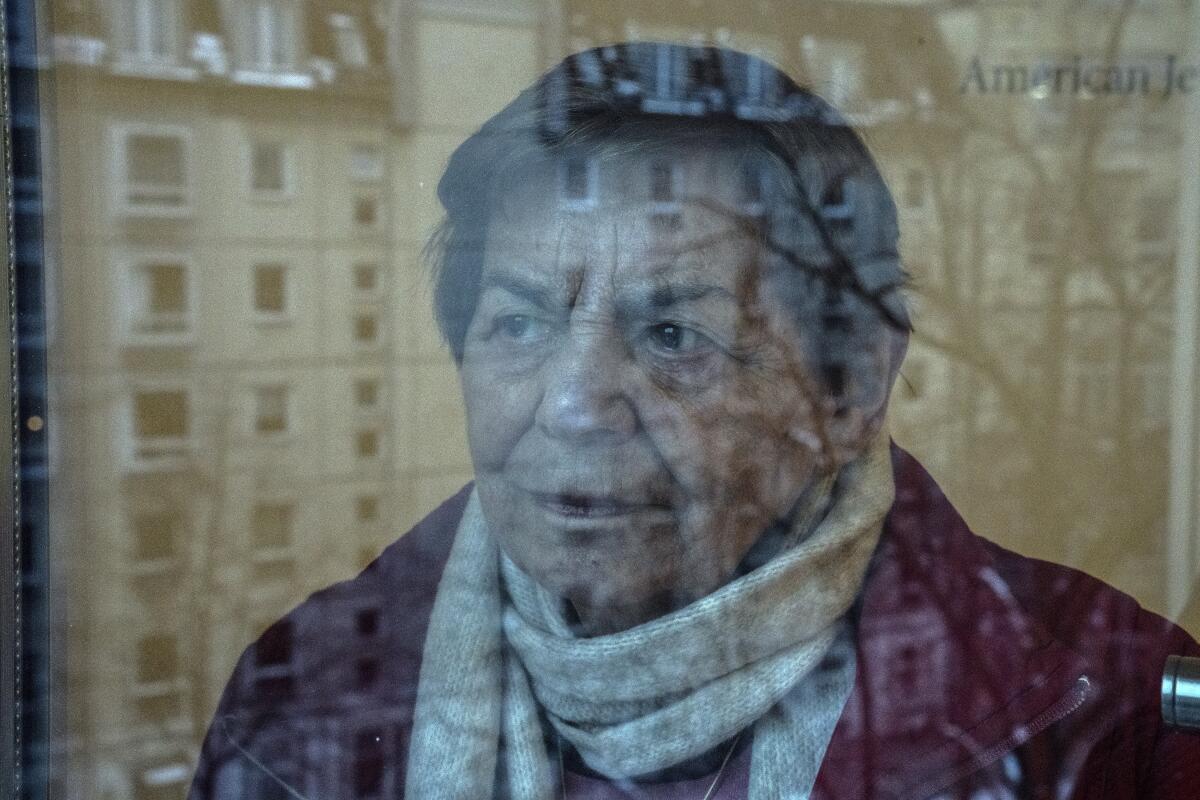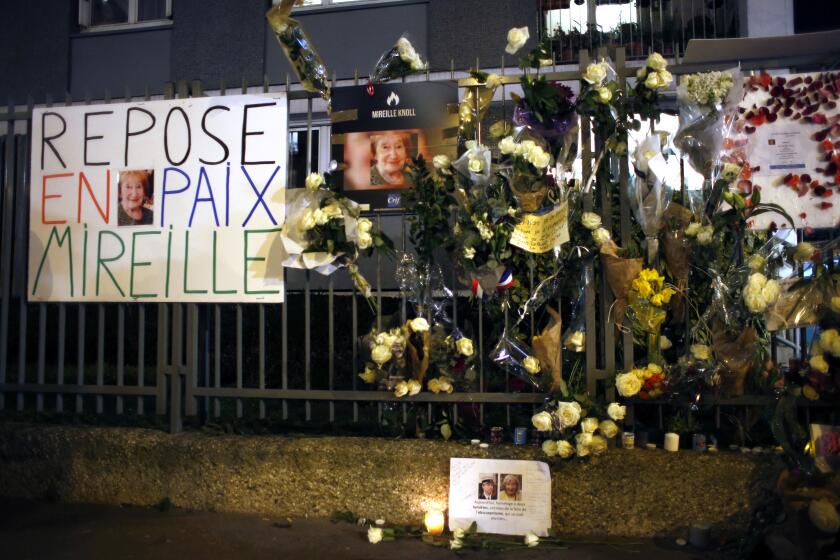Almost 80 years after Holocaust, 245,000 Jewish survivors are still alive, report says

BERLIN — Almost 80 years after the Holocaust, about 245,000 Jewish survivors are still alive across more than 90 countries, a new report said Tuesday.
Nearly half of them, or 49%, live in Israel; 18% are in Western Europe; 16% are in the U.S.; and 12% live in former Soviet countries, according to a study by the New York-based Conference on Jewish Material Claims Against Germany, also referred to as the Claims Conference.
Before the report, there were only vague estimates of how many Holocaust survivors were still alive.
Their numbers are quickly dwindling, as they have a median age of 86 and many are in frail health. One in 5 survivors is older than 90, and female survivors (61%) outnumber male survivors (39%).
The vast majority, or 96% of survivors, are “child survivors” who were born after 1928, the report said. Titled “Holocaust Survivors Worldwide. A Demographic Overview,” the report is based on figures collected up to August 2023.
“The numbers in this report are interesting, but it is also important to look past the numbers to see the individuals they represent,” said Greg Schneider, the Claims Conference’s executive vice president.
A federal court Tuesday rejected a Jewish family’s decades-long legal fight for a famous Pissarro painting that was taken from them by the Nazis at the dawn of World War II and is currently at a museum in Spain.
“These are Jews who were born into a world that wanted to see them murdered. They endured the atrocities of the Holocaust in their youth and were forced to rebuild an entire life out of the ashes of the camps and ghettos that ended their families and communities,” Schneider said.
Six million European Jews and people from other minorities were killed by the Nazis and their collaborators during the Holocaust.
It is not clear exactly how many Jews survived the death camps, the ghettos or in hiding across Nazi-occupied Europe, but their numbers were a far cry from Europe’s prewar Jewish population.
In Poland, of the 3.3 million Jews living there in 1939, only about 300,000 survived.
Marion Lewin and her twin brother, Steven Hess, were sent to the Nazi camps as young children and knew little of their previous life in Amsterdam — until now.
Around 560,000 Jews lived in Germany in 1933, the year Adolf Hitler came to power. At the end of World War II in 1945, their numbers had diminished to about 15,000 through emigration and extermination.
Germany’s Jewish community grew again after 1990, when more than 215,000 Jewish migrants and their families arrived from countries of the former Soviet Union, some of them also survivors.
Nowadays, only 14,200 Holocaust survivors still live in Germany, the report said.
One of them is Ruth Winkelmann, who survived by hiding with her mother and sister in a garden shed on the northern outskirts of Berlin. Her father was killed in Auschwitz. Her younger sister, Esther, died of illness, hunger and exhaustion in March 1945, just weeks before the liberation of Berlin by the Soviet Red Army.
A French man has been sentenced to life in prison for stabbing an 85-year-old Holocaust survivor to death in what was determined an antisemitic attack.
Winkelmann, who is 95 and still lives in Berlin, said there hasn’t been a day in her life when she didn’t remember her beloved father.
“It always hurts,” she said. “The pain is there day and night.”
For its new report, the Claims Conference said it defined Holocaust survivors “based on agreements with the German government in assessing eligibility for compensation programs.”
For Germany, that definition includes all Jews who lived in the country from Jan. 30, 1933, when Hitler came to power, to May 1945, when Germany surrendered unconditionally in World War II.
News Alerts
Get breaking news, investigations, analysis and more signature journalism from the Los Angeles Times in your inbox.
You may occasionally receive promotional content from the Los Angeles Times.
The group handles claims on behalf of Jews who suffered under the Nazis and negotiates compensation with Germany’s finance ministry every year. In June, the Claims Conference said that Germany had agreed to extend another $1.4 billion for Holocaust survivors around the globe for 2024.
Since 1952, the German government has paid more than $90 billion to individuals for suffering and losses resulting from persecution by the Nazis.
Winkelmann has made it her mission to tell her story. Even at 95, she still visits schools across Germany — and has a message for her listeners.
“I tell the children that we all have one God, and although we gave him different names and have different prayers for him, we shouldn’t look at what separates us, but what unites us,” she said.
“And even if we disagree, we should never stop talking to each other.”
More to Read
Sign up for Essential California
The most important California stories and recommendations in your inbox every morning.
You may occasionally receive promotional content from the Los Angeles Times.












